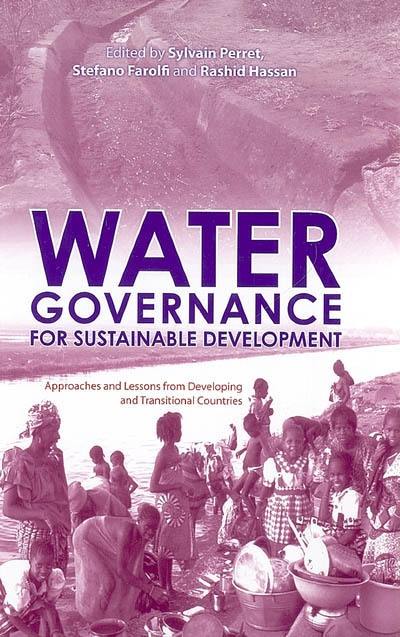
Fiche technique
Format : Cartonné
Nb de pages : XXIV-295 pages
Poids : 610 g
Dimensions : 16cm X 24cm
ISBN : 978-1-84407-319-1
EAN : 9781844073191
Water governance for sustainable development
approaches and lessons from developing and transitional countries
Quatrième de couverture
« This book eloquently demonstrates the various tasks institutions have in improving water management, by taking a wider definition of what institutions may consist of. Having multi-sectoral and international case analyses, the book appeals to a wide range of readership. In particular, introducing several approaches to be considered by readers makes the book much more handy to those who are interested in the topics and their implementation. »
Ariel Dinar, Agriculture and Rural Development Dept, World Bank
Good management of water resources - universally identified as a key aspect of poverty reduction, agriculture and food security - has proven, in practice, as difficult to achieve as it is eagerly sought. This book, edited and authored by leading authorities on water resource management, examines the recent changes in governance, institutions, economics and policies of water, covering developing, transitional and developed countries, with special emphasis on southern African case studies.
The book examines how water policies, institutions and governance have shifted in recent years from supply-driven, quantitative, centrally controlled management to more demand-sensitive, decentralized, participatory approaches. Such a move often also implies cost recovery principles, resource allocation among competing sectors, and privatization. The case studies demonstrate that the new policies and legal frameworks have been difficult to implement and often fall short of initial expectations.
Using an accessible multidisciplinary approach that integrates economics, sociology, geography and policy analysis, the book untangles the issues and presents best practices for policy- and decision-makers, governments and regulators, NGOs and user groups, service providers, and researchers. The overall aim is to show how good water governance structures can be developed and implemented for the benefit of all.





